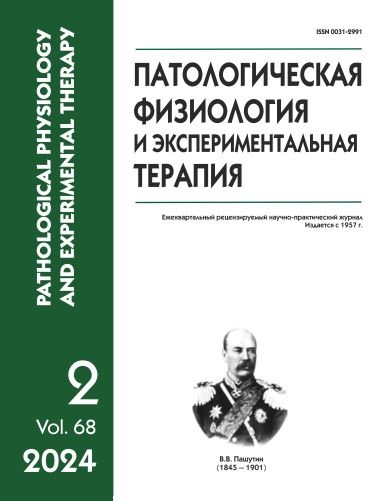Effect of nerve growth factor antibody overproduction in pregnant female mice on the development of their offspring in the nesting and early post-nesting periods of development
Abstract
Introduction. A high level of antibodies (AT) to a protein such as nerve growth factor (NGF) in pregnant women correlates with
the health of newborns. In experimental studies, reducing the NGF level by specific AT is a way to change the effects of this protein and to study the effect of its shortage on the development of brain and the formation of behavior. The aim of the work was
to study the effect of NGF AT overproduction in mice on the development of their offspring in the nesting and early post-nesting periods of development.
Methods. Female ICR mice were immunized four times with NGF protein with Freund’s adjuvants. Females produced offspring
that were studied for somatic, sensorimotor, and cognitive development during the nesting period, as well as anxiety, risk assessment behavior, and locomotor activity in the early postnesting period.
Results. NGF AT overproduction in pregnant mice affected the offspring development after birth. Retarded somatic development,
disturbances in the formation of sensorimotor coordination of the limbs, delayed formation of cognitive abilities, increased anxiety, and increased motor activity were observed.
Conclusion. The likely cause of behavioral disorders induced by the NGF AT during the prenatal and postnatal brain development is abnormal maturation of the cholinergic system in the basal forebrain. The results of the study complement the knowledge about the NGF regulatory function during the development of the nervous system and can be used for finding methods of
compensation for the emerging disorders






